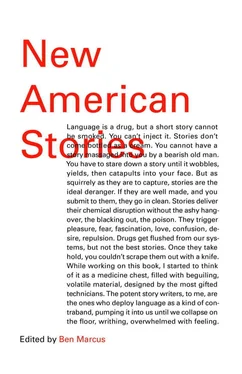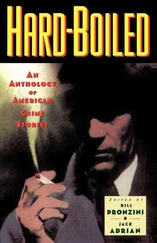The way Roberto was making his own way in this world now was through relatively sedentary employment as an assistant to a cobbler who also happened to be his landlord and who cut him a break on the rent in addition to giving him shoes if they were left in the shop past sixty days. Roberto would be turning twenty-five soon, and he’d come up with a fairly reasonable plan that involved learning a trade, saving money, going to college, opening a business, starting a family. The cobbler paid him in cash twice a month, so twice a month he had an enormous roll of money that he liked to caress as if it were a puppy. The roll was generally in fives and tens and added up to no more than a couple hundred dollars, but it made him look and feel rich. “Like Tyler McCoy,” he’d say, and he’d reenact in pitch-perfect detail the scene where Tyler McCoy is trying to get one guy to go in with another guy on the heist that turned out to be a double cross. “Me. You. Now. Together.” When Roberto had satisfied himself with fondling the roll, we would walk to the post office, where he would buy all the money orders he needed to pay all the bills that were under assumed names. We’d wait in a long line of poor people and illegal immigrants and that occasional unfortunate American citizen who had just come in to buy a book of stamps. When we emerged from the post office an hour later, Roberto would be broke.
The mass of flesh suddenly shifted like an animal beneath forest leaves, and his swollen eyes opened. They were bloodshot and bleary, and it took a moment for him to orient himself. “Oh, shit,” he said when he understood who I was and where we were. “You came. My man.” His voice was thick and stuffy like air in a cellar, and I was surprised to hear the slightest trace of the accent he had rid himself of years ago. It could have been an earlier version of him rising from the dead. Oh, shee. You came. My main.
“Of course I came,” I said, wounded, as if I had never contemplated otherwise. And because I knew it would make him happy and endear me to him, I added, “Of course I came, Tyler. ”
He grinned, and the bandages pulled tight across his face, and the grin evaporated as he cried out in agony. I stood in alarm, but the pain subsided quickly. He struggled out of bed, throwing the sheet back with determination, bringing both feet to the floor and forcing himself upright so that he could face me.
“This is the best guy,” he said with the utmost sincerity, as if introducing me to an audience. “This is the greatest guy in the whole world.” This was an example of Roberto’s hyperbole.
His trunklike arms came around my shoulders and squeezed me hard, until I felt like a child, even though I was taller than he was. I feared he would lift me off the ground and swing me. Instead, he laid his head against my chest, so that he was the one who seemed transformed into a boy, hugging his father the day before he left for good.
—
In June, the marines were put on high alert, the temperature reached one hundred degrees, and the bill from the hospital arrived. It was three thousand dollars.
I loaned Roberto two hundred to cover the minimum, and a few days later he called me from the cobbler’s phone to invite me over to his apartment to see his “special surprise.”
“What special surprise is that?” I said, but he refused to tell me. He had to get back to work.
So the following Saturday, which also turned out to be the hottest day of the year so far, I pulled up to his apartment building. It was early evening, but it seemed to be getting hotter, as if the setting sun were drawing nearer. Roberto lived in one of those neighborhoods that were either up-and-coming or on the way out, an equal mix of aluminum siding, college students, and small shops — one of which was the cobbler’s shop, whose awning I now stood beneath, waiting desperately for Roberto to come downstairs and let me in. His doorbell never worked but I had been forbidden by the cobbler to yell up at the window. Instead, I had to arrive at our mutually agreed-upon time and stand on the sidewalk patiently and quietly until Roberto opened the door. If I showed up early, I’d have to wait; if I showed up late, Roberto would have to wait. Today I showed up right on time, but there was no Roberto. Every few minutes, behind the window, the cobbler would rise from his shoe machine and eye me mercilessly, as if he’d never seen me before and suspected I was up to no good. He hated me, and I hated him. He was fat, and he smoked constantly, and he had a thick head of black hair. I had a theory that he colored it with shoe polish. He was Italian or Greek or Armenian — we could never figure out which — and he had been in America for fifty years but could hardly speak English. Even Roberto made fun of him. “ ‘I can no find a-black-a shoelazes…’ ” I’d gotten off to a bad start with him the first time I visited Roberto and screamed up at the window at eleven o’clock in the morning, “Robbie!”
“You no come here act like hoodlum,” the cobbler had demanded. “Like nigger.”
“Hey!”
“Hey!”
“That word’s not called for!”
“I call police!”
“Fix the doorbell!”
“I fix you!”
“Fuck off!”
“That word not called for!”
“He’s my window of opportunity,” Roberto had shrieked when I told him what happened. So I went back downstairs, hat in hand, and apologized.
“My customers good customers” was all he said.
Fifteen minutes after I had arrived, Roberto still hadn’t come down to open the door. This wasn’t like him at all, and a subtle unease began to creep over me. I recalled the apple pickers who had been rounded up by the INS in the middle of the night, and I was on the verge of panicking when Roberto appeared from around the corner, carrying a big blue box that said DVD PLAYER. He was grinning freely, despite his nose being covered with bandages that made it look as if he had a small pillow in the middle of his face.
“What’s in the box?” I said, though it was obvious what was in the box.
“Robbie!” said the cobbler, waving. “You buy me DVD player?”
Roberto laughed, and so did the cobbler. The cobbler’s laugh was intended to make me the odd man out.
In his apartment Roberto sat cross-legged on the floor, tearing open the box as if it were Christmas Day. Styrofoam peanuts went everywhere, and when he removed the thin silver DVD player, it gleamed sharply in the evening light. He smiled at it lovingly. I sat on the sofa and fumed, dripping with sweat. His apartment was even hotter than outside. It was one square room with a kitchenette, a saggy sofa bed, and three folding chairs; the bathroom was down the hall and shared with six other tenants. All Roberto’s furniture belonged to the cobbler, and so did the television and dishes. The wall of his kitchenette had been covered meticulously with those pictures of Arnold Schwarzenegger, the most prominent of which was him in a suit and tie with his arms and thighs pressing hard against the fabric. The apartment felt like a boiler room in a subsubbasement. It even sounded like a boiler room, with the constant low-frequency vibration coming from the cobbler’s shoe machine. Roberto seemed wholly unaffected by the heat. He was always unaffected by the heat. I had never seen him sweat.
“Can’t you open a window?” I asked.
With one gigantic arm, he swung open the window and then got back to fitting inputs into outputs. Immediately a fly came in through the window, but no breeze. I watched the fly settle on a plate and crawl around. Then a second fly came in. Roberto turned on the television to a game show that was nearing its climax. A woman had to pick the right color if she wanted to win fifty thousand dollars. The audience was screaming at her, and she was flustered.
Читать дальше










![Женя Джентбаев - neo futura [stories]](/books/692472/zhenya-dzhentbaev-neo-futura-stories-thumb.webp)

